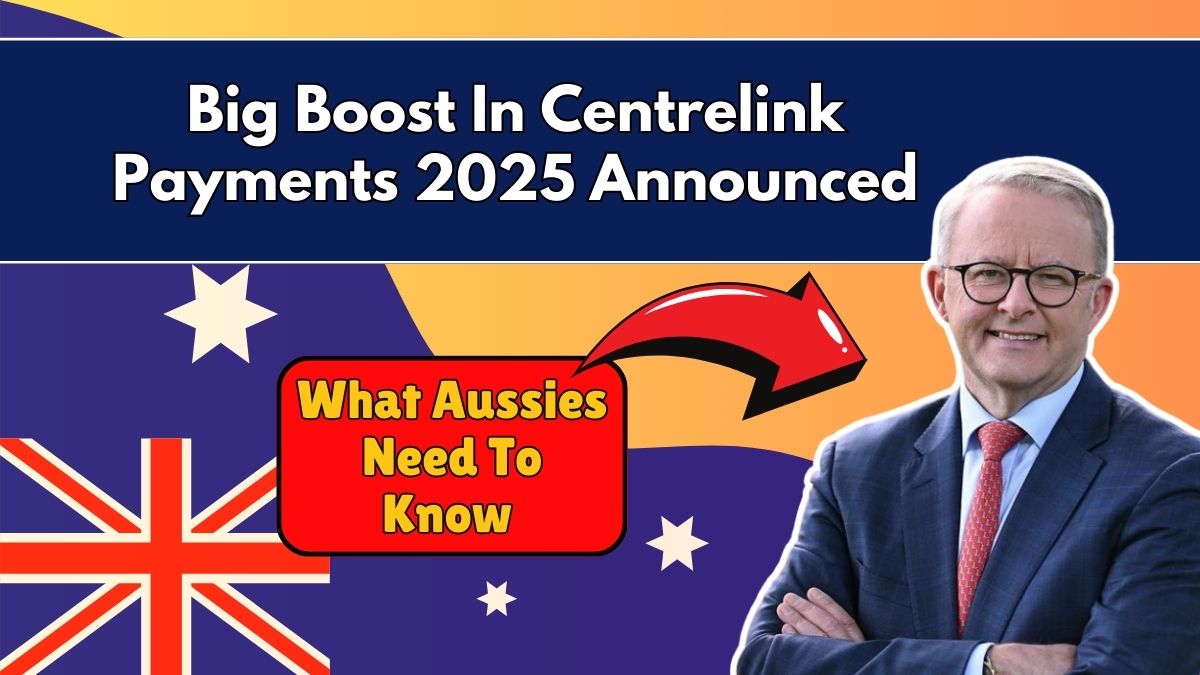In 2025, the Australian government has implemented significant adjustments to Centrelink payments to assist citizens in managing the escalating cost of living.
While the specific Cost of Living Payment was discontinued on June 30, 2023, other welfare payments have been increased through the indexation process, ensuring that pensions, allowances, and family benefits align with current economic conditions.
These payment adjustments took effect from March 20, 2025, and are designed to help Australians cope with inflation and the rising costs of essential goods and services.
Detailed Breakdown of Payment Increases
1. Age Pension
The Age Pension supports older Australians in retirement. Effective March 20, 2025:
- Single pensioners receive $1,149.00 per fortnight, an increase of $4.60.Each member of a couple receives $866.10 per fortnight, an increase of $3.50.
2. JobSeeker Payment
Designed for unemployed Australians actively seeking work, JobSeeker Payment rates have increased slightly:
- Single recipients without children now receive $789.90 per fortnight, an increase of $3.10.Single recipients with children receive $819.90 per fortnight, an increase of $3.30.Partnered recipients receive $715.10 per fortnight, an increase of $2.80.
3. Parenting Payment
This payment assists primary carers of young children:
- Single parents now receive $1,030.30 per fortnight, an increase of $4.00.Partnered parents receive $701.10 per fortnight, an increase of $2.80.
4. Commonwealth Rent Assistance
Rent Assistance helps eligible Australians with rental costs:
- Single recipients without children receive $212.00 per fortnight, an increase of $0.80.Couples receive $199.80 per fortnight, an increase of $0.80.Single sharers receive $141.33 per fortnight, an increase of $0.53.
Key Centrelink Payment Increases
The following table outlines the updated payment rates effective from March 20, 2025:
| Payment Type | Previous Fortnightly Rate | Increase Amount | New Fortnightly Rate | Eligibility Criteria |
|---|---|---|---|---|
| Age Pension (Single) | $1,144.40 | $4.60 | $1,149.00 | Australians aged 67 and over who meet residency and income/asset tests. |
| Age Pension (Couple, each) | $862.60 | $3.50 | $866.10 | Couples aged 67+ meeting combined income and asset tests. |
| JobSeeker (Single, no children) | $786.80 | $3.10 | $789.90 | Unemployed individuals aged 22+ actively seeking work. |
| JobSeeker (Single, with children) | $816.60 | $3.30 | $819.90 | Single parents actively seeking employment. |
| JobSeeker (Partnered) | $712.30 | $2.80 | $715.10 | Unemployed individuals aged 22+ with a partner, both actively seeking work. |
| Parenting Payment (Single) | $1,026.30 | $4.00 | $1,030.30 | Principal carers of young children, primarily single parents. |
| Parenting Payment (Partnered) | $698.30 | $2.80 | $701.10 | Partnered parents with at least one dependent child under the age of six. |
| Commonwealth Rent Assistance (Single, no children) | $211.20 | $0.80 | $212.00 | Singles without children paying rent above the specified threshold. |
| Commonwealth Rent Assistance (Couple) | $199.00 | $0.80 | $199.80 | Couples paying rent above the specified threshold. |
| Commonwealth Rent Assistance (Single, sharer) | $140.80 | $0.53 | $141.33 | Singles sharing accommodation and paying rent above the specified threshold. |
Eligibility Criteria
Eligibility for these payments varies by type but generally includes the following factors:
- Residency: Applicants must be Australian citizens or permanent residents.
- Income and Asset Tests: Payments are reduced if income or assets exceed certain thresholds.
- Age: Specific payments, such as the Age Pension and JobSeeker, have particular age requirements.
- Parental Responsibilities: Family and parenting payments require applicants to have dependent children.
How to Apply for Centrelink Payments
If you believe you qualify for a Centrelink payment, follow these steps:
- Check Your Eligibility: Use the Centrelink Payment Finder to determine which payments you qualify for.
- Set Up a MyGov Account: Log in or create an account at MyGov and link it to Centrelink.
- Submit Your Claim: Apply through MyGov or visit a Centrelink office.
- Provide Supporting Documents: Submit proof of identity, income statements, asset information, and any medical or parental documentation if required.
- Wait for Processing: Most claims are processed within 2 to 4 weeks. Applicants are notified of the outcome via their MyGov account or Centrelink letter.
Why the Payments Were Revised
The indexation of Centrelink payments in March 2025 reflects the government’s response to economic trends and inflationary pressures. With essentials such as housing, groceries, energy, and healthcare becoming more expensive, this revised payment structure ensures that welfare recipients retain their buying power.
Key indicators behind the increase include:
- Consumer Price Index (CPI): Tracks changes in the cost of essential household items.
- Pensioner and Beneficiary Living Cost Index (PBLCI): Measures changes in living costs specifically for people on pensions and benefits.
- Average Weekly Earnings (AWE): Ensures that payments grow in line with national wage increases.
By tying benefits to these metrics, the government ensures fairness and sustainability in its welfare system.
The 2025 adjustments to Centrelink payments provide timely and necessary financial support to millions of Australians.
Though the standalone Cost of Living Payment is no longer in place, the indexation-based increases to the Age Pension, JobSeeker, Parenting Payments, and Family Tax Benefits ensure that recipients are not left behind as the economy changes.
FAQs
Has the Cost of Living Payment returned in 2025?
No. The one-off Cost of Living Payment was discontinued as of June 30, 2023. However, other welfare payments have been increased to reflect rising living expenses.
When did the new Centrelink payment rates start?
The revised payment rates took effect from March 20, 2025, in line with the biannual indexation schedule.
Are the new payment increases permanent?
Yes, these are ongoing adjustments made through indexation. Further revisions may occur in September 2025, depending on economic conditions.



